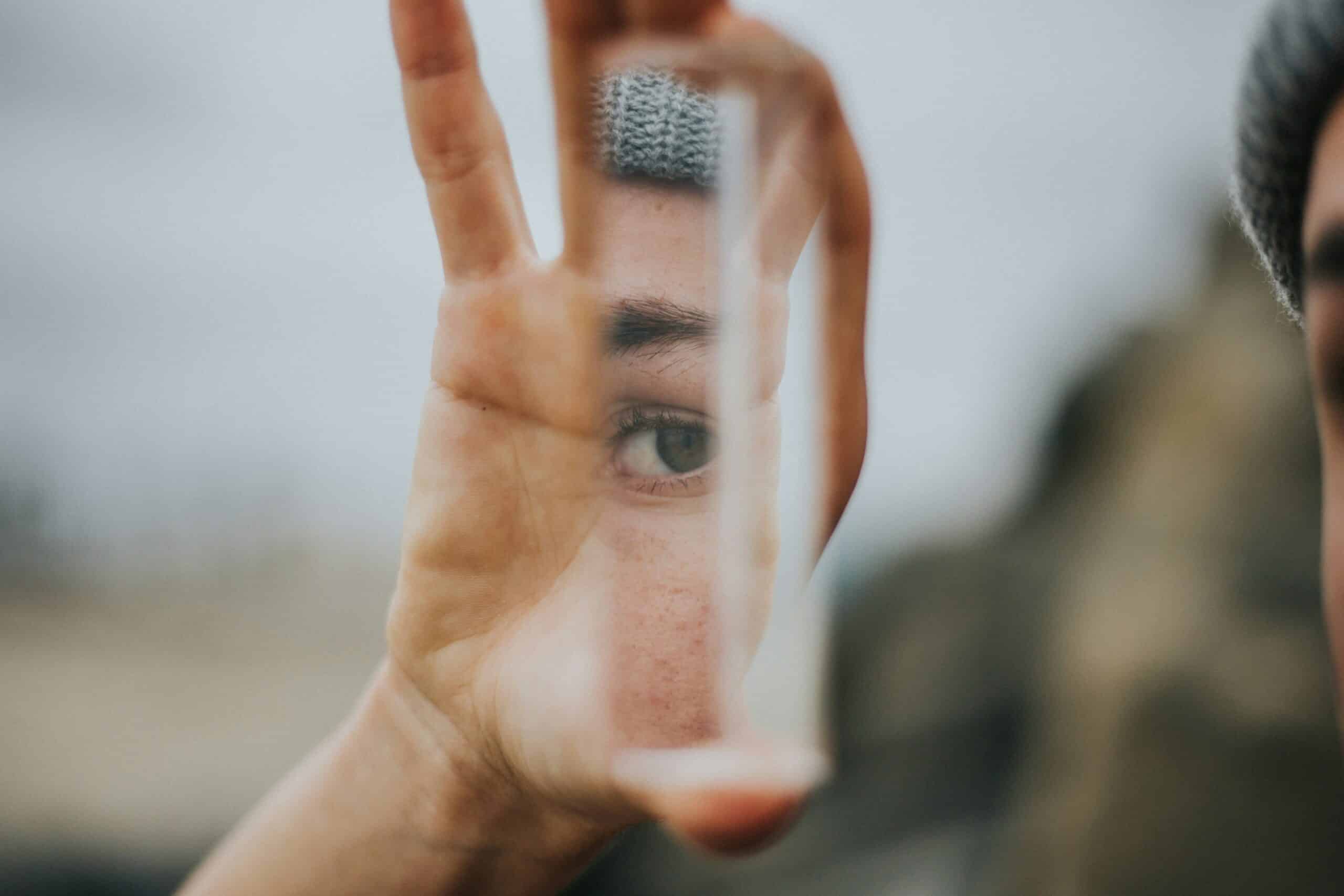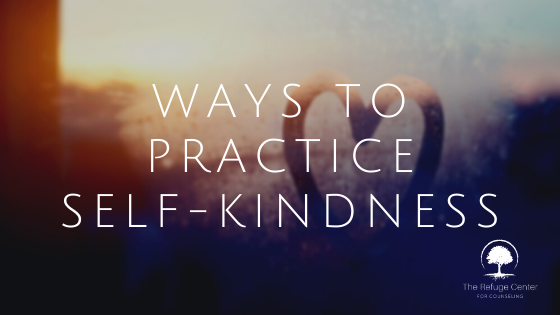Life can be so busy. There is rarely an appointed time in our days to stop and think – or take a few moments pause to self-reflect on our lives. Finding a hard stop in the daily schedule may be counter-intuitive and seem like an unproductive use of our time, considering all the things on the to-do lists that keep piling up.
However, making time to think and take stock of your life from a broader perspective helps you focus on what is important and of value to you. Allowing room for this kind of thought and self-reflection also helps add meaning in the day-to-day aspects of life.
Having a daily discipline and practice of self-reflection, meditation, mindfulness, or prayer, is an important part of self-care and mental health. But how do we fit-in a time to do it, and what does that time and place look like? Personally, this is where I always got stuck.
Then last year, I was given a college classroom assignment. My classmates and I took a brief Self-Care Assessment. You can access the worksheet here: https://www.therapistaid.com/worksheets/self-care-assessment
This assessment helps participants understand their self-care needs by discovering patterns and areas of their lives that could benefit from more attention. It included areas of Physical, Psychological/Emotional, Social, Spiritual, and Professional Self-Care.
The assessment asked participants to rate questions from 1-3, which meant “I do this poorly” or “OK” or “well,” or “I would like to improve at this.” My assignment was to identify a couple of areas with my lowest scores, so I could focus and work on those areas to change. My classmates and I were told to journal once a week about our progress for a month.
My area of growth to focus on was: Set aside time for thought and reflection.
This was something I was already trying to do, but not very well. I wanted to get better at carving out more intentional and rewarding time every day for thought and reflection. I was not sure how I was going to do it. What I came up with took a little patience, resolve, and some creativity.
Here’s how it went. The following is a capsule of each week.
Week #1
My wish is to purposefully and intentionally set aside time for thought and reflection, rather than it being a passive, whenever-I-feel-like-getting-around-to-it endeavor. The time I usually allot for thought and reflection consists of mere moments at night just before sleep, or a few stolen moments upon waking up in the morning as I get out of bed. Both methods do not allow for any quality time. Both show a lack of priority or intention on my part. Prayer is blended into this, too. I feel these time periods are rushed before sleep and rushed in the morning when I am time-crunched to get up and start the day, whether I have to be somewhere or not.
I would like to think that the time that I set aside nightly for reading would also naturally include time for thought and reflection. However, drowsiness starts to creep-in. Maybe I should start before picking up anything to read?
Does allowing my mind to wander freely provide enough head space for thought and reflection? This often occurs when I am walking in nature or around my neighborhood. Time in the car on a lengthier drive could provide time for thought, reflection, and prayer, too.
Week #2
It was difficult this past week to intentionally set aside time for thought and reflection. I found myself a couple of nights too tired to even read until I started nodding off and had to turn out the light.
I was able to go to the park again this week to walk and reflect, but only once. I would have liked to have walked at least one additional time this past week.
However, I did try something different. One evening while waiting on the oven timer before dinner, I sat outside. I set a timer for 5 minutes. I kept my eyes trained on the sky. It was during sunset, so the view was great! I watched a set of clouds slowing moving by for the entire 5 minutes. When my alarm went off, it felt like hardly any time had passed at all! I would like to increase this amount to 10 minutes, and go from there. At least by shifting my reflection time to earlier in the evening, I would not have issues staying alert and awake, or crowding the time into my bedtime reading.
Week #3
I did much better this week with setting aside time for thought and reflection. I have come to look forward to my time outside alone at sunset before dinner, and it is easy to get to 10 minutes now, even to 15 minutes. On days when I was occupied during sunset hours, I was able to recall to mind, “Oh wait, I am missing my reflection time today!” On Friday evening for instance, I was on a drive by myself to pick up dinner. I had the car windows down, and on both legs of the route, I was able to intentionally think, ponder, and even talk out loud to myself. It was great to have these moments alone and use the time for the purpose of reflection, prayer, and gratitude. No radio on. No talking on the phone. I think the key is to be flexible and creative, too, when time for reflection is needed and the structure or routine is interrupted, either expectedly or unexpectedly.
Additionally, I was able to go to the park twice this week to nature-walk like I had hoped, and I went back to Yoga class one day. It was a restorative experience, and I was able to have some time during the end of class to purposely reflect and offer praise and gratitude in peaceful, silent prayer, even if just for a few minutes.
Week #4
I have come a long way in being intentional about setting aside time for thought and reflection. Whereas at first it seemed awkward and challenging to pin-down a way to incorporate it into my daily routine, it has since become a protected and revered time of my day. I look forward to the time I can just sit and think and reflect, even if only for a few concentrated minutes. My spouse is even in on it now. When I tell him I am going to have my reflection time, he understands that it is a time that I take for myself to be alone.
Ultimately, I came up with a practice that I can modify with my schedule and environment (and the weather). There is flexibility and creativity, not pressure. Even in performing daily tasks, there can be areas of mindfulness and focused attention – cooking, eating alone, and doing these things without talking on the phone or watching TV at the same time. Doing one thing at a time, or “single-tasking,” as HelpGuide.org called it, offers more room for self-awareness and mindfulness.
When I do not have a set time to reflect before dinner, I am more cognizant throughout the day of taking time to think. I pause at moments and check-in with myself. I step outside to get a few breaths of fresh air to intentionally reset my mind and thoughts, and I make sure to look up at the sky. I see the clouds above, and take-in the wonder of the world and my place in it.
In the end, I learned something that I will always have with me, and there is no going back on what I now know to be an effective way to check-in with myself. It is a way to find more room in life for grounding and peace.
If you would like support in identifying areas of your life that need attention and growth, The Refuge Center for Counseling is here to help. You can schedule an intake appointment by calling (615) 591-5262 or by emailing [email protected] to discuss setting up an intake session, where our trained staff will connect you with one of our counselors.
References:
HelpGuide.org. Benefits of Mindfulness. Adapted with permission from Positive Psychology: Harnessing the Power of Happiness, Personal Strength, and Mindfulness, by Harvard Health Publishing. https://www.helpguide.org/harvard/benefits-of-mindfulness.htm
Self-Care Assessment worksheet. (2018). Provided by TherapistAid.com.
https://www.therapistaid.com/worksheets/self-care-assessment




